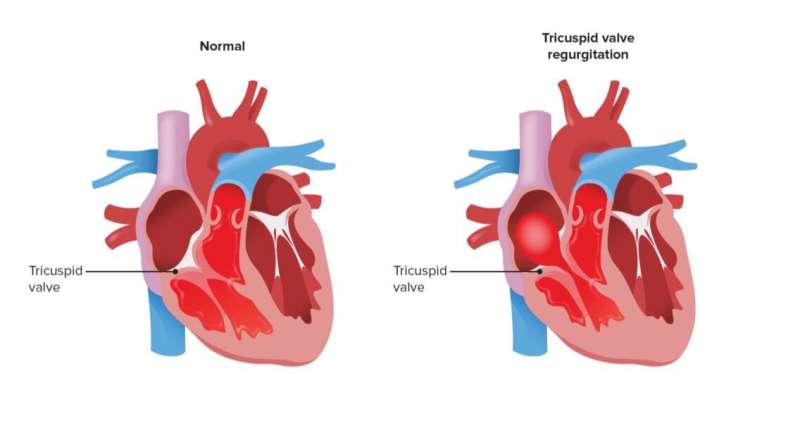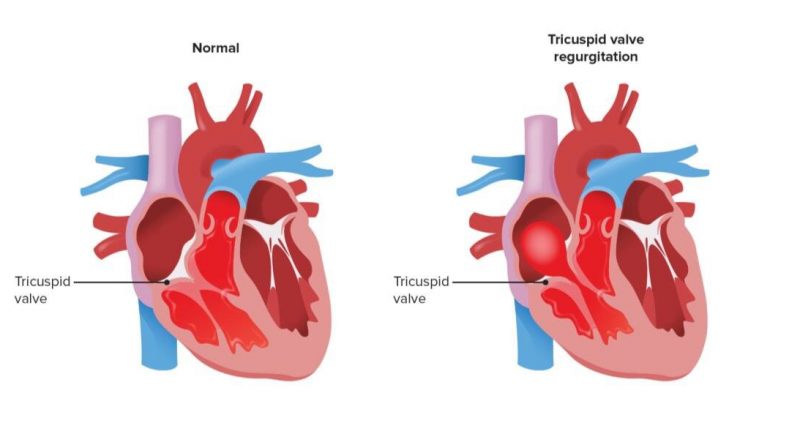New minimally invasive treatments offer hope for patients with severe heart valve disease

National Heart Center Singapore (NHCS) now offers two new procedures—TricValve and TriClipTM—bringing a comprehensive suite of treatment options, ranging from medication therapies, minimally invasive (percutaneous or transcatheter) procedures, and surgical treatments to repair or replace the damaged valve, to patients with severe tricuspid valve problems. Being the early adopter for advanced valve therapies, NHCS was the first in Asia to introduce Transcatheter Aortic Valve Implantation (TAVI), also known as Percutaneous Aortic Valve Replacement (PAVR) in 2009, and also to perform minimally invasive heart valve repair using the MitraClip system in 2011.
In the past, treatment of severe tricuspid regurgitation was limited to medications to alleviate symptoms, and surgery to repair or replace the valve. For some patients, operative risk was high and the condition was left largely undertreated. Now, with the advancement and availability of less invasive transcatheter valve therapies, such as TricValve and TriClipTM, selected patients who are unsuitable for open heart surgery might be able to get their condition treated. Although these are relatively new procedures for which long-term data on outcomes are still being studied, they are additional options for patients with significant symptoms who are deemed unsuitable for surgery.
What is tricuspid regurgitation?
Tricuspid regurgitation (also known as leaky heart valve) occurs when the valve between the two right heart chambers (atrium and ventricle) does not close properly, causing blood to leak backwards. When the regurgitation becomes severe, it can lead to congestion in various organs such as the liver and the kidney, and affect their function. Severe tricuspid regurgitation has been shown to be associated with significant mortality and morbidity.
New procedures to treat severe tricuspid regurgitation:
Hope for patients with severe tricuspid regurgitation
In 2020, when 52-year old Mr. Tan experienced shortness of breath, leg swelling and abdominal bloating, little did he know he had severe tricuspid regurgitation. As Mr. Tan has an underlying condition known as Marfan syndrome that affects the aorta and had undergone several surgeries, he is considered high risk for tricuspid valve surgery. An earlier attempt to treat the tricuspid regurgitation could not improve his condition. Fortunately, the availability of TricValve provided him an alternative treatment, enabling him to recover faster and improve his quality of life.
“We strive to constantly look at advancing treatments to improve patient care and bring better health outcomes. The introduction of these new transcatheter valve therapies provide viable treatments for severe tricuspid regurgitation that will help patients to alleviate their symptoms, shorten hospital stay and recovery time, and more importantly, improve their quality of life,” said Associate Professor Yeo Khung Keong, Deputy Chief Executive Officer (Data Science & Innovation) and Senior Consultant, Department of Cardiology, NHCS and the lead physician for TricValve and TriClipTM procedures.
“During the TricValve procedure, two bioprosthetic valves are inserted through the blood vessel of the patient’s leg and placed in the venous system close to the right heart chambers. The valves then self-expand in place and work to reduce the backflow of blood and pressure on the other organs in the body. There is no need to remove or repair the original tricuspid valve, allowing for future interventions if required,” explained Dr. Wong Ningyan, consultant, Department of Cardiology.
Source: Read Full Article



